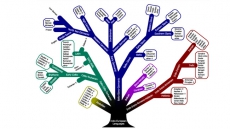Safe. It’s a feeling easily taken for granted. We wake up, go to work, take the bus home to our family, and tuck our kids in at night without a second thought. But as violent attacks on public transit, random outburst in seemingly innocent neighbourhoods, and sexual crimes at well-respected universities continue to make the news, it’s hard not to question the sanctity of one’s safety.
For women, the issue of safety is especially precarious.
In speaking with organizations around Vancouver that provide support and resources for women in times of need, it’s clear the concern over women’s safety is complicated. Do women in Vancouver feel safe? It’s not a simple yes or no answer.
“It depends if women feel safe in their homes and if women feel safe in the public. If women feel safe in the public areas where there are more people, like parks and on public transportation, and if they’re feeling safe when there’s not many people, like side streets or residential areas,” says Angela Marie MacDougall, executive director of Battered Women’s Support Services, detailing situational concerns over a women’s safety.
Unfortunately, there is justified reasoning for any concern at all. “When women know how much the threat of violence is real, most women are very aware of that and a lot of times behave accordingly,” says Hilla Kerner, of the Vancouver Rape Relief & Women’s Shelter. “They will try not to walk alone at night or they hold their keys while they’re going to their car – all kinds of little “ordinary behaviours’ women internalize because they know there is a threat of violence.”
“We are socialized to protect ourselves from male violence,” agrees MacDougall. Sadly, such behaviours are often not enough; statistics show a woman’s safety is most often compromised in places thought to be safe.
“We know from our work alongside women that stranger assaults are a very small percentage of the sexual assaults that we see. Most women are assaulted by people they know and trust,” Women Against Violence Against Women (WAVAW) Rape Crisis Centre said in a statement emailed to DARPAN.
“You just don’t anticipate it will happen to you from someone you trust but, I think, in general, women feel unsafe because they are aware of the reality of women’s lives,” says Kerner.

While questions surrounding the safety of women in the city are complicated, the solution to the violence seems to be just as problematic. “We are asking the question, what women do or what women can do to feel safe in the public realm and in the private realm,” says MacDougall. “The bigger question is, why is there male violence against women. And why does it continue with relative impunity?”
WAVAW expressed similar concerns: “Women are never responsible for the violence committed against them. Instead of putting the burden on women to keep themselves safe, systems and institutions need to respond to violence against women by holding perpetrators accountable. Creating safety for women requires a shift in the way our communities respond to sexualized violence.”
“We look to put the problem with the individual and we render invisible the pervasive and endemic male violence against women,” continued MacDougall. “It doesn’t help to continue to focus on individual women; we actually need to go to the source of the problem. The conversation that then results in behaviour change is going to be the solution for women’s safety.”
The sad truth is we’re not there yet and so violence happens and women are at risk. Because the risk exists, so do certain strategies that aim to help women.
“International human rights laws like the Convention to Eliminate All Forms of Discrimination against Women require that signatory states like Canada take action to eliminate mental, physical and sexual violence against women,” explains director of law reform of West Coast LEAF, Kendra Milne. “Canada and BC have taken steps to implement laws to address violence against women and girls, but while the laws prohibit violence, most of them provide legal remedies after the violence has already occurred.”
Despite the laws currently in place, recent attacks show just how necessary it is that more can and needs to be done. “Unfortunately, women often need legal advice and representation to access many of these legal remedies, and legal aid in BC is wholly inadequate,” says Milne, detailing the struggle to receive legal aid is hindered by extremely low income eligibility thresholds. “In addition, we know that up to 90% of women who experience sexual assault do not report it to the police and, when they do, very few cases lead to charges and prosecution.”
Coupled with changes to community thinking, authoritative action can help shift the conversation.

“The BC and Canadian government can absolutely take proactive steps to eliminate violence against women in Vancouver,” says Milne. “A meaningful and properly funded national and provincial action plan to address violence could include elements like address issuing of poverty, inadequate healthcare and inadequate housing that put women, and especially marginalized women, at increased risk of violence or make it more difficult for them to escape it. It should include reform to the police and criminal justice system to eliminate the stigma and revictimization that comes with reporting sexual violence.”
“Legal aid service in British Columbia should be adequately funded to allow women to access the legal supports they need when they have or are at risk of experiencing violence,” she says, noting that proper funding for support services is also necessary as some crisis centres report 1.5 year wait lists to access counselling.
When there is work to do, rent to pay and families to tend to, enough worries consume our everyday without adding safety to the list. Walking alone at night or taking a new bus may make women think twice but the thoughts of those who provoke such worry may be what should be questioned more.
While feeling safe shouldn’t be taken for granted, it’s a feeling that shouldn’t be taken away by someone else.

IF YOUR SAFETY IS AT RISK...
If you or anyone you know is thought to be at risk for violent attacks or feel their safety to be compromised in any way, there are many support lines and resource centres available to offer information and assistance. “Because when you’re not safe, you need an immediate response,” says Kerner about the need for 24-hour crisis lines offered by most centres.
Battered Women’s Support Services
604-687-1867 or 1-855-687-1868 (toll-free)
B.C. Crime Stoppers
1-800-222-8477 (anonymous tip line)
Surrey Women’s Centre
Surrey Mobile Assault Response Team
604-583-1295 (24-hour)
Vancouver Rape Relief & Women’s Shelter
604-872-8212 (24-hour)
Women Against Violence Against Women Rape Crisis Centre
1-877-392-7583 (toll-free 24-hour)
If you don’t feel safe, talk to someone. Assaults do not have to be reported to the police to access the majority of services available to those in need. This includes access to medical intervention in the event of injury during an assault which should never be avoided due to shame or guilt. Knowing your options can be the best defence when it comes to staying safe.





